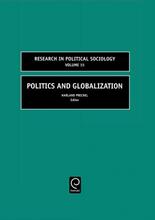
Abstract
The paper addresses a core question in the literature on states and political challenges from excluded social classes: how is large-scale collective action possible against repressive governments in the global periphery? Using the case of El Salvador’s 1932 peasant-worker uprising, the paper contributes to theories of organizational expansion and radicalization in nondemocratic settings. The case study suggests that periods of regime liberalization deposit organizations in civil society that persist beyond the political opening in the system. Combining historical materials with logistic and hierarchical linear modeling (HLM), it is found that the political threats constituting liberalization reversals provide negative incentives for surviving reform-minded organizations to attempt revolutionary forms of collective action in more hostile political environments.
